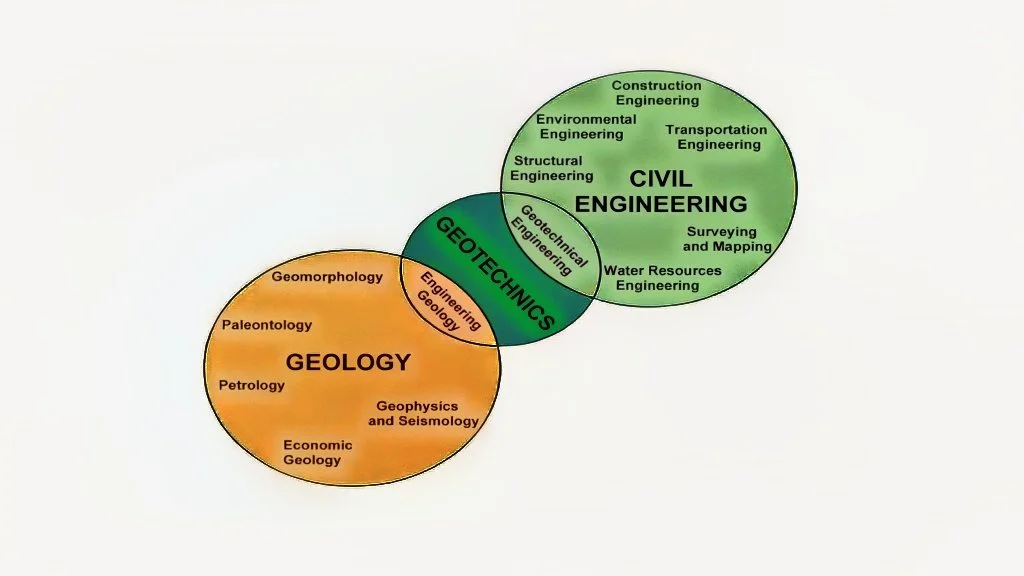What is Geotechnics?
I’ve been asked this question for over 16 years, and I will attempt to provide a comprehensive explanation here.
Geotechnical engineering is a specialization within the civil engineering field. Civil engineers can specialize, just as doctors do in medicine. When we graduate from university, we graduate as Civil Engineers with a foundation in all 7 specializations. This is why all civil engineers can do all 7 (see Figure 1 below).
Figure 1: Diagram showing how both Geology and Civil Engineering make Geotechnics
The geotechnical engineering specialization enables engineers to understand soil mechanics, foundations, slope stability, dams, retaining walls, and all aspects related to soils. Our work is often unseen because we are the first discipline to go into the field to collect data. We provide the results of our investigation and recommendations to an architect or structural engineer, who will then design the structure above ground.
Geotechnical Engineering has a limitation, which is the influence of geology. A geotechnical engineer who is only specialized in the civil engineering field cannot understand geology (such as bedrock and faults).
Enter Geological Engineering or Engineering Geology, a concentration within the field of Geology. Geological Engineering is the application of engineering principles in geology. What is this? To explain it fully, geological engineering enables engineers to understand rock slopes, rock cuts, rock cores, hazard mapping, faults, hydrogeology, geophysics, and the interactions between structures and bedrock.
When you combine both Geotechnical Engineering and Geological Engineering, you get what we call “Geotechnics”. In the industry, architects and other engineering disciplines refer to us as “Geotechs”. If you are ever in a meeting regarding a dam, new building, bridge foundation, or any other project related to the ground before construction, you will now know what people mean when they say “Geotech” or “Geotechs”.


